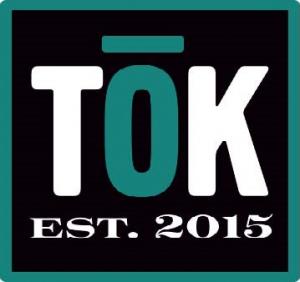It is hard to believe that two years have passed since the German government changed the law to mandate insurance coverage of cannabis by public health insurers. It is not so much the passing of time, but what has and what has not happened here on the ground during this stretch.
This is borne out by a quick overview of regional developments just in the last few weeks on the ground across the European Union.
Germany
The country that is still given credit for kicking off the whole medical cannabis enchilada discussion on a formal, federal level in Europe, still has not issued its first domestic cannabis cultivation tender. It will be two years this April since the initiative was first announced. Since then, several lawsuits have derailed the process, BfArM, the federal agency in charge of the tender, has admitted to a “technical fault,” and, presumably after the next round in court, the agency might be able to get on with business. The next date of note is April 10 (when the lawsuit will be heard in Dusseldorf).

Hopefully, this also means that the domestic cultivation of cannabis will finally begin (according to the agency) by, at latest, the fourth quarter of 2020. In the meantime, look for the awarding of bid finalists (or in the worst case, one more bid issuance after April) this year.
In the meantime, and even according to BfArM’s press statements, the import industry will fill in the gaps- meaning that by the time cultivation actually gets under way for real here, it will already be swamped, in terms of volume, by imports.
Where those imports will come from is another discussion. Right now, the only two countries with import rights for cannabis into Deutschland are Holland and Canada. Expect that to change this year, with Israel, Portugal, Spain and potentially even Greece all being very likely contenders.
Switzerland
Significantly, this tiny, non-EU but Schengen state is considering a pilot to study recreational cannabis. Namely, 5,000 recreational users could soon be recruited to help the government set the rules for a fully recreational market, presumably sometime in the near future.
Switzerland has led the discussion in the region on several fronts- notably setting the pace on CBD sales and continuing to air debates about how profitable the fully recreational industry will be for the public purse.

Photo: martin_vmorris
It is all very intriguing, particularly to neighbouring DACH state, Germany, but don’t expect the Swiss to do anything too outrageous on the legalization front- namely step too far out in front of either the UN or the European Parliament. Or anger their other DACH trade partner, Austria, who has taken the extreme polar opposite approach to all things CBD.
So to the extent that the Swiss have very much led the charge on the CBD front, such policies have not and will certainly not be copied across Europe (and has not been so far) any time soon. See the controversies over “novel foods” popping up not only in Austria, but Spain too.
Regardless, like Luxembourg, the Swiss are eyeing this new industry and proceeding cautiously in line with larger, international regulations that so far have led the pack on tweaking, testing and presumably changing in the next couple of years.
There are at least 200,000 people who currently use the fully leaded THC version of the drug illegally. Those who would qualify for the pilot study (only one of several proposed as the country considers the impact of cannabinoids from all angles) would have to be adults who already use the drug.
Stay tuned. This will certainly be one interesting trial.
Belgium
Belgium has also just announced the formation of its own “Cannabis Agency.” The new agency will, just as in Germany, oversee the development of the industry domestically- namely issuing licenses for production and import and overseeing quality.
Does this mean a Belgian cultivation bid is on the horizon? Could be. Although so far, no country except Greece has engaged in any large-scale cultivation effort commissioned by the government. And no country except Germany has so far issued a public tender. Even Italy proceeded with a unique hybrid last year when the military essentially turned over the domestic production it controlled over to Aurora.
This too is also likely to be an interesting space over the next few years.
A Belgian tender, right along with a Polish one (also expected after BfArM successfully executes at least one) may well be in the offing this year. This may also put additional heat on the German agency to bite the bullet and issue cultivation licenses by the end of 2019 no matter what happens in Dusseldorf in April.









 And cannabis is a drug like no other. Why? Despite all the pharmacization of the plant that is going on right now as producers are being forced to produce pills and oils for the medical market, cannabinoid treatments will not be pushed so easily into “orphan” status – since whole plant products can treat a range of diseases. This is important in terms of supply and negotiated prices down the road. But in the short term, cannabis is falling into a couple of strange categories created by organized public healthcare, insurance mandates (both public and private), the demands being placed on producers in this space to act more like pharmaceutical companies, limited public spending budgets, and a changing demographic where chronic conditions treated by cannabis are a whole new ballgame. Namely patients are living longer, and not necessarily old.
And cannabis is a drug like no other. Why? Despite all the pharmacization of the plant that is going on right now as producers are being forced to produce pills and oils for the medical market, cannabinoid treatments will not be pushed so easily into “orphan” status – since whole plant products can treat a range of diseases. This is important in terms of supply and negotiated prices down the road. But in the short term, cannabis is falling into a couple of strange categories created by organized public healthcare, insurance mandates (both public and private), the demands being placed on producers in this space to act more like pharmaceutical companies, limited public spending budgets, and a changing demographic where chronic conditions treated by cannabis are a whole new ballgame. Namely patients are living longer, and not necessarily old.






















